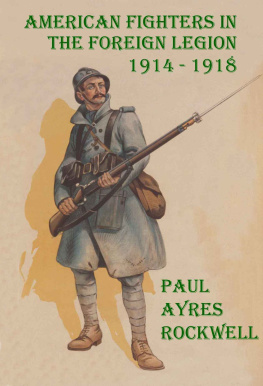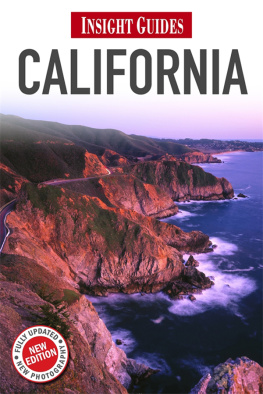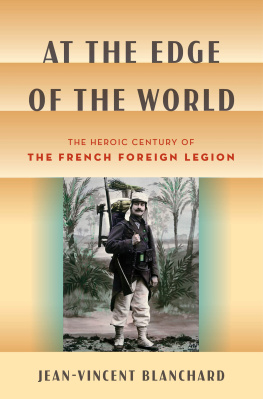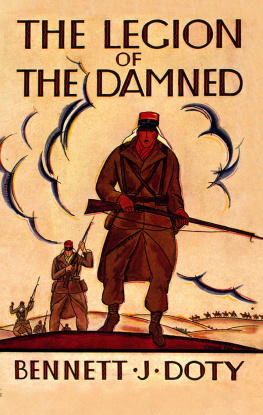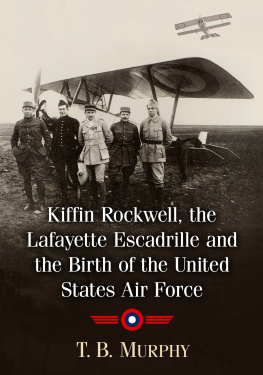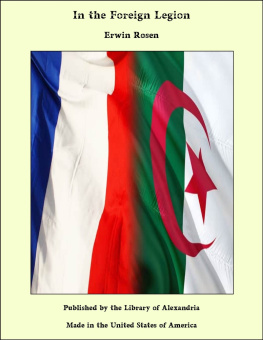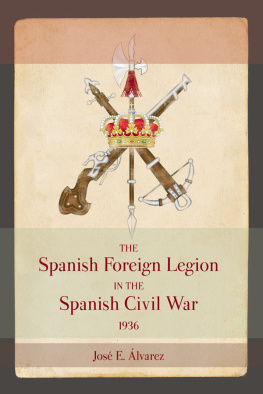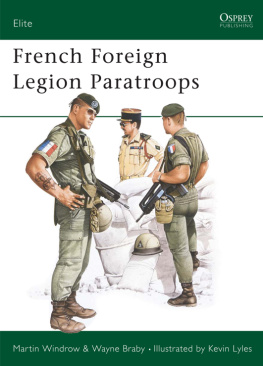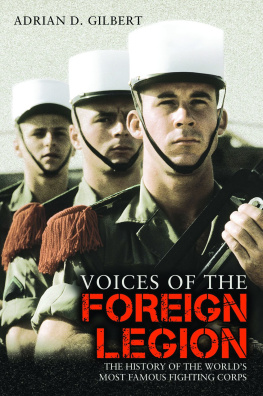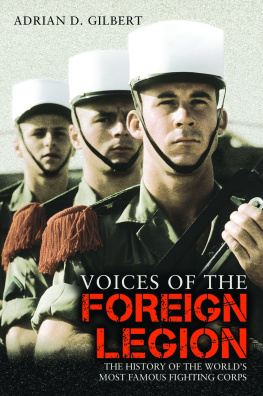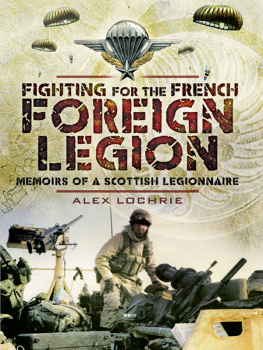Table of Contents

Introduction
Amidst the minor noise of the centennial of the Great War, very little is being heard of the American volunteers of 1914. Those men who voluntarily enlisted in the ranks of the French Army to fight for an adopted nation, or an ideal of patriotism.
Long after the war, 1930, Paul Rockwell wrote this volume which has continued to be 'the' source of information on American volunteers in the French Army and Air Force. Long out of print, and now quite expensive, he was able to chronicle every known volunteer, and give us some information of what happened to them after the war. The toll did not magically end in 1918.
Almost as forgotten are the Americans that went to Canada and Great Britain in greater numbers to enlist and fight against, what they felt, was a common enemy. Many may have enlisted out of a false sense of thinking war is a great adventure. However, they put their lives on the line for whatever reason, did not stay at home and get rich, and should be remembered.
We must not also not forget that during the war a large population of the United States was of German decent. It is estimated that over 10% of the country was either born in Germany, or had parents born in Germany. Many of these men did what they felt was right and returned to their homeland. Some were returning to their old reserve regiments, some brand new soldiers that needed training. We may feel their judgement was misguided, but their zeal was no less as strong.
Not included in this book are the countless other volunteers, mainly doctors, nurses and ambulance drivers that assisted the French military in the early years of the war. There were probably specialists of all types scattered throughout the French military that have gone unrecorded and unhearalded.
This test is true to the original, however with three minor changes. First, the French names and terms have been 'anglacized' and had their accent marks removed. My reason for this (and apologies to the French) is that I was concerned that in this day when every device runs differently, not all ebook readers would handle them in the same way. The second change is that many French terms (which Rockwell did italicize) are not explained. I have added a brief explanation of them in brackets [such as this]. Thirdly, I have altered the placement of the photos slightly to bring them closer to more relevant text. The (two) footnotes are Rockwell's.
A note about uniforms: at the start of the war the Legion wore the dark blue coat and red pants of the French Army. When the red was discovered to be too visible, they were issued thin dark blue overalls to conceal them. They later changed to the light horizon blue briefly, before being issued with the brown uniform of the colonial troops.
Perhaps the most famous of all American Volunteers Was the Poet Alan Seeger. An uncle to Pete Seeger the musician, his body still lies forgotten in an unmarked grave in France. It is thought that his remains are in a mass grave at the French cemetery at Lihons en Santerre. His reknown poem about war and death remains one of the most important works on war. In one hundred years we have learned much, but not enough. This book would not be complete without it.
Jonathan Gawne
Framingham, MA 2014
"I Have a Rendezvous with Death"
Poem by Alan Seeger
I have a rendezvous with Death
At some disputed barricade,
When Spring comes back with rustling shade
And apple-blossoms fill the air
I have a rendezvous with Death
When Spring brings back blue days and fair.
It may be he shall take my hand
And lead me into his dark land
And close my eyes and quench my breath
It may be I shall pass him still.
I have a rendezvous with Death
On some scarred slope of battered hill,
When Spring comes round again this year
And the first meadow-flowers appear.
God knows 'twere better to be deep
Pillowed in silk and scented down,
Where love throbs out in blissful sleep,
Pulse nigh to pulse, and breath to breath,
Where hushed awakenings are dear...
But I've a rendezvous with Death
At midnight in some flaming town,
When Spring trips north again this year,
And I to my pledged word am true,
I shall not fail that rendezvous.
Preface
No novel of war or of exotic adventure can compare in interest with the plain, true story of the little group of American citizens who volunteered to fight for France in the early days of the World War and went into the historic Foreign Legion. Fiction writers have imagined nothing more thrilling and more splendidly heroic than the deeds of some of these men, nor can be pictured anything greater or more stirring than moments that came to them; words cannot describe fatigue and hardships and suffering more bitter than they at times knew. Nor were romance and humor absent from their story.
Looking back over the American volunteers of the Foreign Legion a decade after the ending of the terrible struggle in which they played their role, they appear as a whole an exceptionally fine lot of men. They came from all walks of life, from every stratum of society represented in their broad country; the motives that brought them into the service of France were many
and varied, but most of them had something in common that seems unusually fine and precious in this materialistic post-war age, an unconscious idealism and simple courage linked with a splendid disinterestedness that appears all too rarely nowadays.
Some of the volunteers stand out especially: Victor Chapman, Henry Farnsworth, and Alan Seeger, that great poet of the World War, all three idealists of the most lofty type; Kenneth Weeks, who felt that in fighting for France he was defending his own home and mother; Kiffin Rockwell, with his fierce love for France and sense of a personal debt to Lafayette and Rochambeau; Dr. David E. Wheeler, who served first as a surgeon in a hospital near the front and became so inflamed with rage at what he saw and heard there that he simply had to get out and fight as a private soldier in the Legion; Ivan Nock, who confided to a friend that from the day war was declared his conscience kept him filled with shame that an able-bodied man should remain out of the conflict, until it forced him to leave his post in the silver mines of Peru and come to face death in France.
There were Edward Stone and William Thaw, who had enjoyed the good things of life in France and could not see the country in danger without lending a helping hand; Frederick Zinn, who after finishing college came to Europe for a holiday, and decided he could best spend it fighting the Germans; Dennis Dowd, who crossed the ocean and joined the Legion because a girl refused to marry him, and found happiness in his service as a soldier; Earl Fike, who from a sheer liking for mystery enlisted in the Legion under the name of John Smith; Russell Kelly and Arthur Barry, whose Irish blood would not let them stay out of a fight; John Bowe, with the spirit of a true Crusader; Lawrence Scanlan, with a quiet but indomitable courage; Edmond Genet and Edgar Bouligny, drawn by some deep and unanalyzed feeling back to the defense of the country their forebears had left generations before to become noted in the early annals of the United States; Jack Casey, who fought to repay France for the hospitality he had received as an art student in Paris; Paul Pavelka and Billy Thorin, sailor lads to whom the war was at first just one more adventure and who finally felt it to be the greatest and finest adventure of all; Alvan Sanborn, to whom age was no handicap; Eugene Jacob, the elderly Woonsocket butcher, conspicuous for his intense hatred of the Germans; Frank Whitmore and Ferdinand Capdevielle, those splendid and patient soldiers; Christopher Charles, who managed to keep his youthful enthusiasm throughout four years of hardest warfare; Brooke Bonnell and Joseph Lydon, who left legs but not their spirit on the battlefield. And dozens of others equally distinguished in one way or another.
Next page
